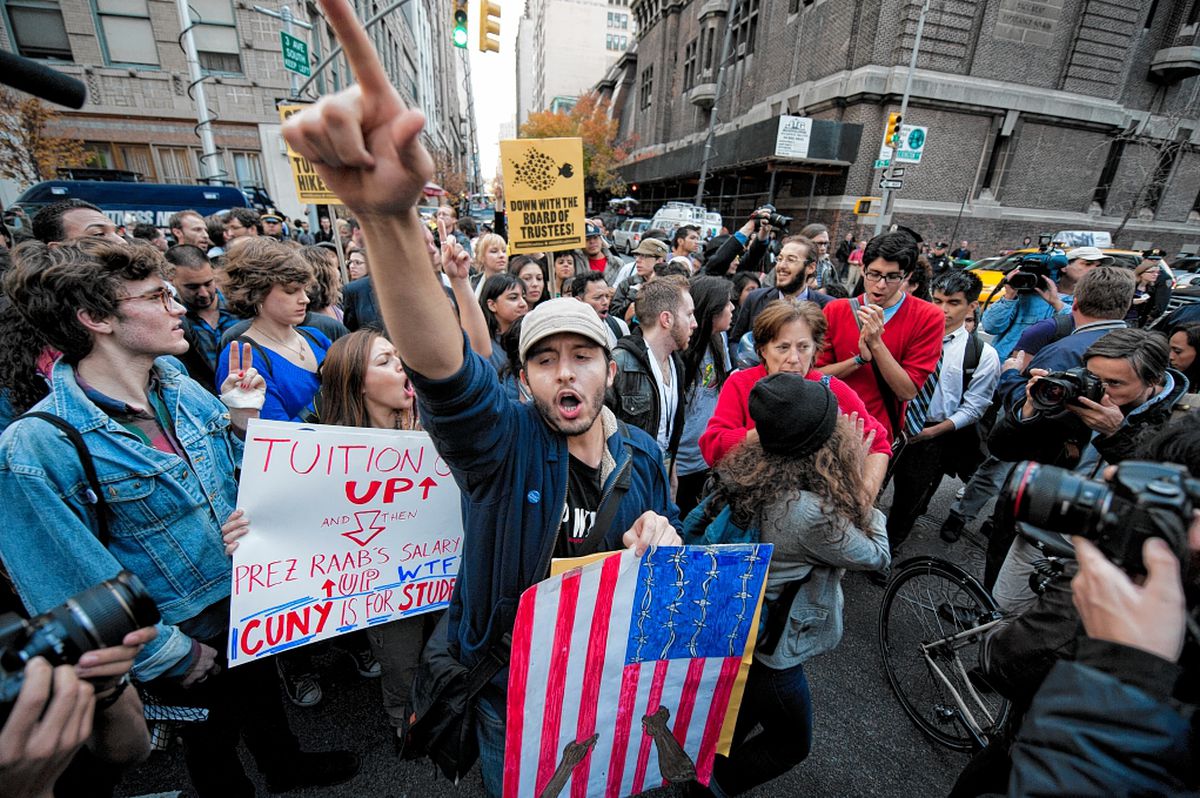City University of New York prides itself on earning high placements in college social mobility rankings published by sites such as The Chronicle of Higher Education. However, with CUNY constantly raising their tuition, CUNY is putting in danger their affordability and continued enrollment of lower income students, which is the very thing that put them so high up on social mobility lists in the first place.
On June 26, CUNY students received an unexpected email. The email revealed a tuition increase would be effective starting the Fall 2019 semester. Approximately just a year prior to that, on July 3, 2018, CUNY students had received another email. The email revealed a tuition increase to take effect for the Fall 2018 semester. CUNY has raised the tuition for two years in a row. But where are the improvements? What are the new costs going toward? And how do the tuition hikes affect the students, staff and faculty?
The hike effects everyone, including a sophomore psychology major at Queens College who chose to remain anonymous due to her undocumented status. When asked about how the tuition hike affects her, she replied “Since I’m undocumented, I don’t qualify to receive financial aid. My tuition comes completely out of my pocket, so any increase to the tuition, even if it’s small, hits me pretty hard.” When asked what she thinks the money is going toward, she believes that there is corruption in the system, and that the CUNY board of trustees are using it to fill their pockets since she has not seen any improvements at Queens College after the tuition increases and that her friends have not seen improvements either at their respective CUNY schools, which include Hunter College and Baruch College.
According to their website, NYPIRG is a “non-partisan, nonprofit, research and public education organization.” NYPIRG has chapters at many college campuses, including our very own, QC. In an interview with Meg Williams, project coordinator of the NYPIRG chapter at QC, listed numerous things. Among them are fighting to preserve funding for the ASAP program, getting tuition freezes, such as in 2016 and improvements in TAP. When asked what they are currently doing involving CUNY tuition and higher education, Williams responded that they are currently working with the CUNY Rising alliance, the PSC and other city unions in organizing.
According to PSC CUNY, public funding for the University has been reduced by 300 million dollars over the past three years. “Instead of restoring public funding, the governor and legislature agreed to five straight years of tuition hikes.” Rather than using funds from public sources, Cuomo has deemed it necessary to come out of student’s pockets.
When asked if CUNY has given a reason for the raise in tuition, Williams answered that the reason CUNY dictated the raises were necessary for funding a new contract for faculty and staff. However, Williams feels that this “unnecessarily pits the needs of faculty against the needs of students.” Williams elaborated, explaining that CUNY has other sources of funding that they could use instead, such as using more state funds and not relying so much on tuition money. It was only in the last 5-10 years where most of CUNY’s operating budget came from tuition and not from state funds.
When asked what students can do to protest against tuition hikes and advocate for affordable education, Williams offered many suggestions. The most important thing she thinks they can do is to stay informed on what the board of trustees is doing because in the past when the board has attempted to do things that were highly disliked by students, the students have sometimes been able to defeat them, but when the board succeeds in their attempt, it’s because students were unaware of what was happening. Students have the opportunity to go to board of trustee meetings and testify, which also helps them meet other students involved in activism. Williams also recommends voting and pressuring officials.














